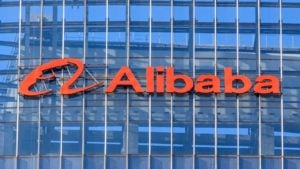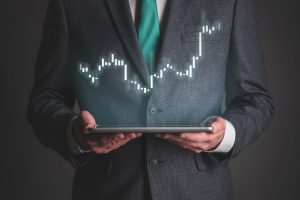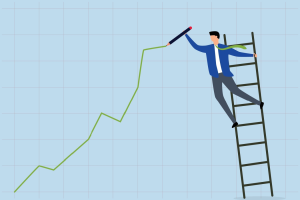
When it comes to picking growth stocks, there’s no shortage of options out there. As an individual investor, it can be incredibly difficult to determine which names have that magical combination of a disruptive business model, strong leadership, and growth potential that can lead to market-crushing returns over the long-haul. However, there’s an easier way to find these companies than poring over financial statements until your eyes glaze over. We can look at what the smart money is buying.
Billionaire investors and hedge fund managers have access to vast research resources, industry experts, and in some cases, insights that aren’t available to the average Joe. So when we see these investors loading up on a particular stock, it pays to take notice. I decided to dig into the recent activity of some top money managers to find out what growth stocks they are most excited about.
I’ll discuss three long-term growth stocks that some of the best in the business have been accumulating recently. By looking at who’s buying these companies and why, we can get a better sense of which names might be built to enrich investors for decades to come. Of course, investing alongside the billionaires doesn’t guarantee success, but it can certainly help tilt the odds in our favor. So, without further ado, let’s dive into three growth stocks billionaires are loading up on!
Bank of America (BAC)

Bank of America (NYSE:BAC) is charting a return to normalcy after the banking sector flirted with a debacle earlier this year. As some of the biggest tech-focused banks started to collapse, the entire sector went through a bearish period, sending bank stocks tumbling to depressed prices. Of course, such news is generally bad for the entire industry. However, the story was quite different for Bank of America. As one of the safest mega-banks in the U.S., the crisis only marginally impacted BAC stock, and actually ended up strengthening the company’s position, as customers fled smaller regional banks for the security of the big banks.
Additionally, the Federal Reserve’s intervention cooled withdrawals, and Bank of America reaped significant gains. Still, there are naysayers pointing to unrealized losses on bank balance sheets and looming recessionary risks. However, these paper losses on fixed-income assets will likely see some recovery as bond prices rise again. In my view, BAC stock is trading at a highly-discounted price right now, providing investors with a substantial margin of safety. Once confidence starts to return more broadly, Bank of America will likely see a sustained recovery back toward normal valuation levels.
Alibaba (BABA)

In contrast to Bank of America’s situation, Alibaba (NYSE:BABA) is a stock that has been trading sideways at discounted prices for quite some time. This stems primarily from post-pandemic e-commerce growth hitting a sluggish pace, leading to falling stock prices industry-wide. Indeed, BABA stock has been a victim of this valuation readjustment, currently trading around $77 per share. However, I believe the stock will recover in the coming years as e-commerce trends higher again and Alibaba’s other business segments gain traction.
Notably, Alibaba has overhauled its management team and is directing resources into high-growth areas like AI and quantum computing. Of course, monetizing these futuristic technologies can take ample time to materialize profits. Nevertheless, even based on existing growth drivers, BABA stock looks severely underpriced at just 8.7-times forward earnings, with near double-digit sales growth expected for years ahead. In my opinion, this is an opportunity where patience through temporary headwinds can pay off handsomely later.
Kinder Morgan (KMI)

Transitioning to the energy sector, Kinder Morgan (NYSE:KMI) is more of a dividend and value play rather than a high-growth tech stock like Alibaba. However, investors have significant total return upside with this stock, thanks to its strategically vital pipeline network. As the Ukraine conflict continues to alter global energy trade flows, American energy exports have surged on high overseas demand, especially heading across the Atlantic to Europe. Therefore, with winter ahead spurring even greater consumption, Kinder Morgan is primed to benefit in a big way from this export super-cycle.
Kinder Morgan has massive existing energy export infrastructure and pipeline networks feeding export hubs, including liquid natural gas (LNG) export terminals. My take is that even if the geopolitical situation stabilizes sooner than expected, the global energy supply chain reconfiguration will likely persist for years, if not decades, due to the long-term impacts of sanctions on Russia. In my view, this backdrop provides a tremendous multi-year growth runway for Kinder Morgan’s pipeline network and export-linked infrastructure, making it a highly-appealing investment for billionaires.
On the date of publication, Omor Ibne Ehsan did not have (either directly or indirectly) any positions in the securities mentioned in this article. The opinions expressed in this article are those of the writer, subject to the InvestorPlace.com Publishing Guidelines.






